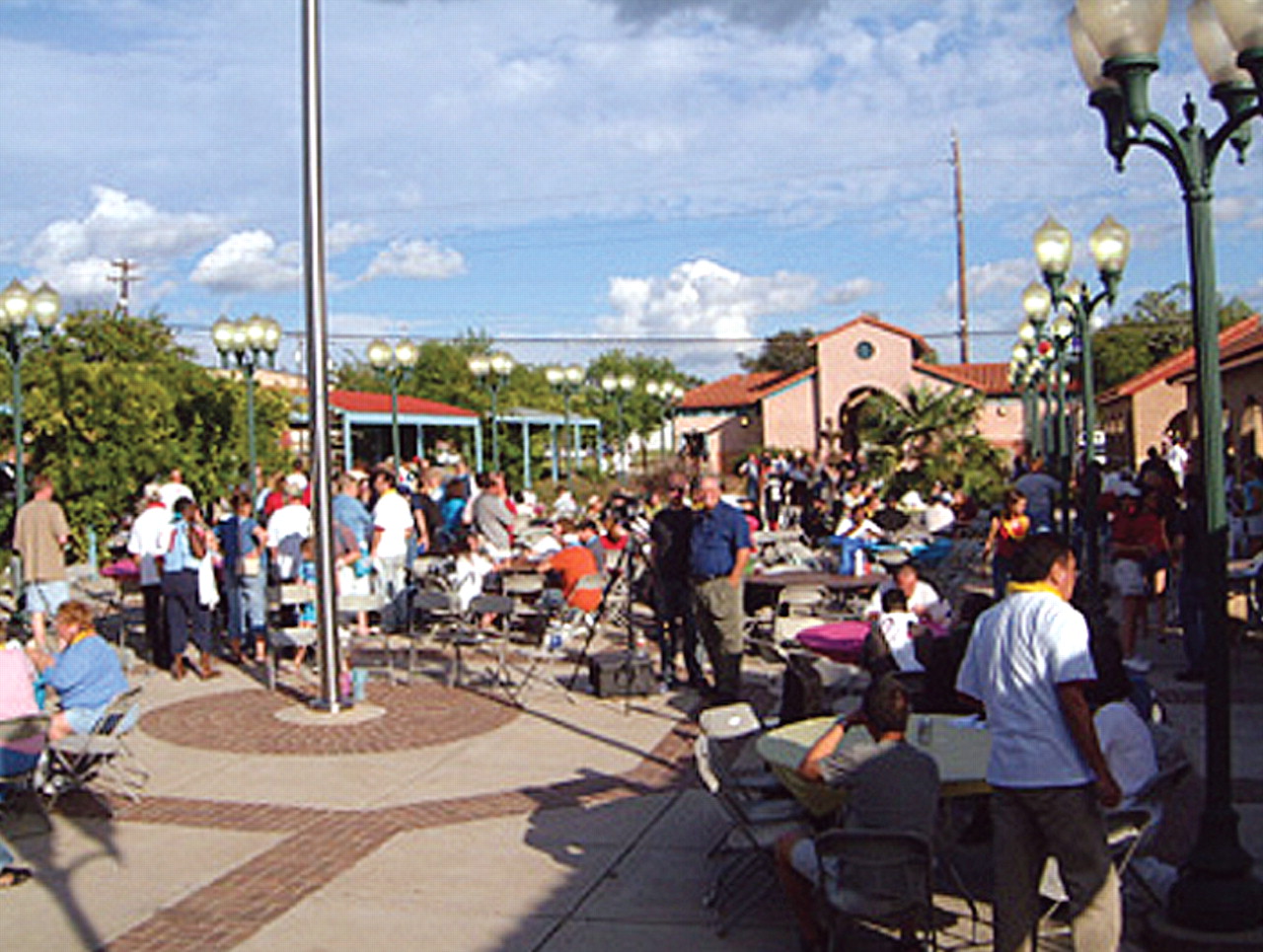It's Celebration Recovery, and Everyone's Invited
In the course of their day, psychiatrists attend to the diagnosis and treatment of psychiatric illnesses and the numerous barriers to care that patients encounter that prevent them from getting well. Increasingly, psychiatrists are now focusing attention on what is the most important phase of illness to psychiatry patients: recovery. APA's Institute on Psychiatric Services will do just that this fall by holding a festive gala known as Celebration Recovery in which people who have struggled with mental illness, along with their friends and relatives, will come together with psychiatrists and others attending the institute, as well as representatives of numerous Chicago provider and advocacy groups.

Celebration Recovery event in Austin, Texas.
This extraordinary event at the institute will be held on Saturday, October 4, from 5 p.m. to 7 p.m. in the Grand Ballroom of the Palmer House Hilton. The free, two-hour celebration will feature music, games, inspirational talks, dancing, food, and information booths.
The keynote speaker will be Moe Armstrong, M.B.A., M.A., the founder of the Peer Educators Project. A Vietnam veteran and self-identified consumer of mental health services, he is a former chair of the Veterans' Subcommittee for the National Alliance on Mental Illness National Board. The National Council for Community Behavioral Healthcare recently honored him for “his life-long commitment to promoting community-based and peer-support services for people living with serious psychiatric conditions.”
Celebration Recovery is being presented by the Irwin Foundation in collaboration with APA and co-hosted by Thresholds Psychiatric Rehabilitation Centers. The Irwin Foundation, which receives sponsorship from a wide array of private, public, and voluntary entities, develops programs to further the vision of recovery from psychiatric illness and develops recovery-focused workshops and symposia.
Celebration Recovery highlights an emerging concept in psychiatry that emphasizes person-centeredness, respect, responsibility, hope, choice, quality of life, consumer and family agency and empowerment, self-help, partnership, diversity, and community inclusiveness.
Recovery from mental disorders should be an expectation, yet the reality of recovery is too often contradicted by stigma, disempowerment, diminished expectations, custodial care instead of active treatment, and pervasive pessimism.
The recovery vision is increasingly informing mainstream psychiatric initiatives. The 2003 report of the President's New Freedom Commission on Mental Health called for a recovery-focused, consumer- and family-driven transformation of mental health care in America, such that “adults with serious mental illness and children with severe emotional disturbance [can] live, work, learn, and participate fully in their communities.”
The vision of recovery has been adopted by most public mental health authorities. In December 2004, more than 100 leaders, including mental health and addiction recovery experts, consumers and families, advocates, community and state officials, national-association staff, and public officials, joined forces at the consensus conference “Mental Health Recovery and Systems Transformation,” sponsored by the Substance Abuse and Mental Health Services Administration. Its goal was to define recovery, reach a consensus on its key principles and elements, and identify recovery implementation strategies that work.
The Irwin Foundation was created in honor of Irwin B., who had a severe mental illness. While he eventually benefited from treatment advances, enabling him to end a relentless cycle of hospitalizations, he continued to struggle with stigma and nonacceptance. The foundation is designed to commemorate his courage and determination to eliminate stigma and to create a better future for those recovering from mental illness.
Since 2001, the Irwin Foundation has held Celebration Recovery events across the country, including at the Institute on Psychiatric Services.
More information on Celebration Recovery is posted at<www.celebrationrecovery.org> and<www.irwinfoundation.org>.▪



